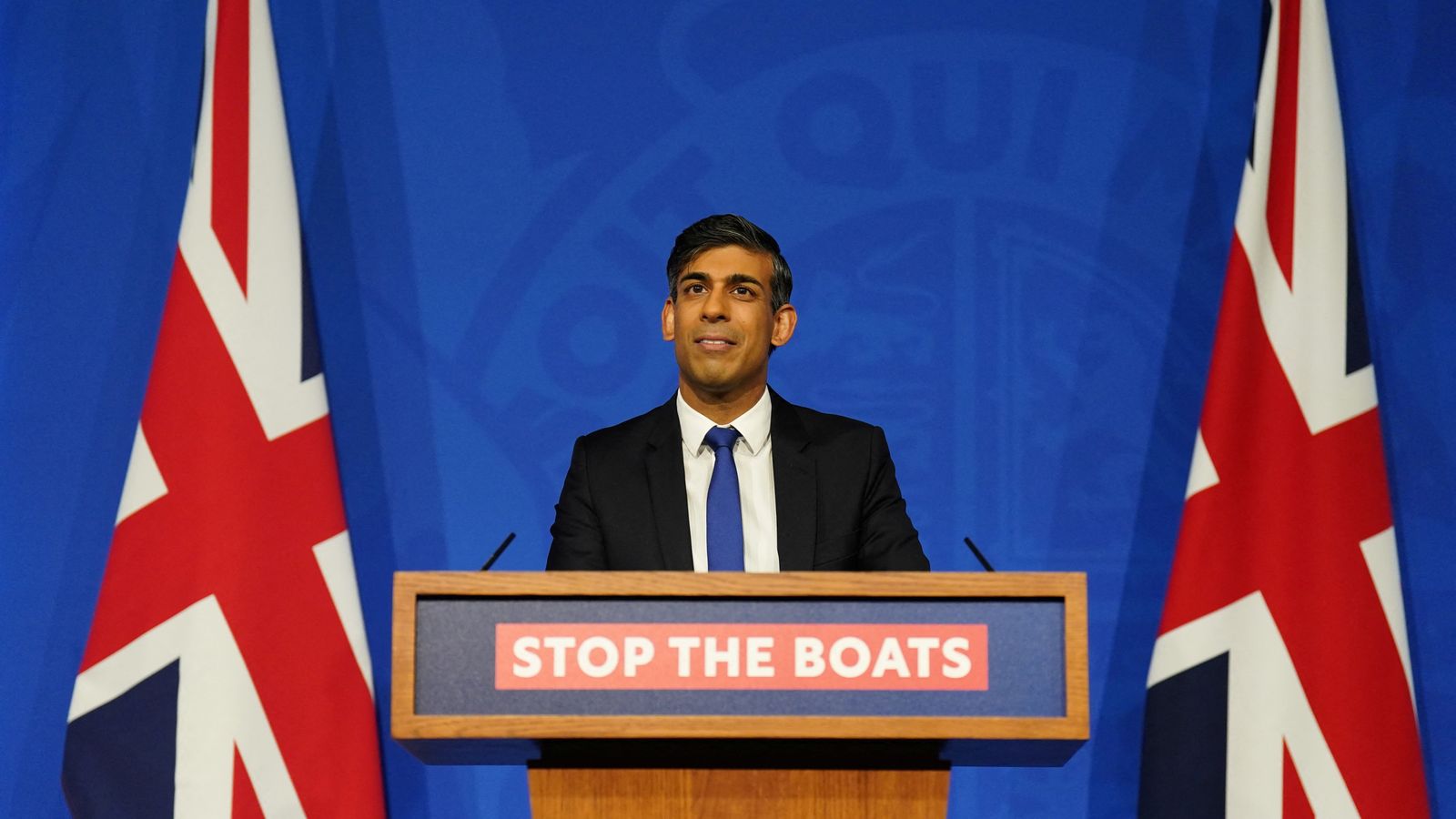Health Secretary Sajid Javid has been directly challenged by an unvaccinated hospital consultant over the government’s policy of compulsory COVID jabs for NHS staff.
During a visit to King’s College Hospital in south London, Mr Javid asked staff members on the intensive care unit about their thoughts on new rules requiring vaccination for NHS workers.
And Steve James, a consultant anaesthetist who has been treating coronavirus patients since the start of the pandemic, told the health secretary about his displeasure.
“I’m not happy about that,” he said. “I had COVID at some point, I’ve got antibodies, and I’ve been working on COVID ICU since the beginning.
“I have not had a vaccination, I do not want to have a vaccination. The vaccines are reducing transmission only for about eight weeks for Delta, with Omicron it’s probably less.
“And for that, I would be dismissed if I don’t have a vaccine? The science isn’t strong enough.”
Mr James also revealed another of his colleagues held the same position.
Mr Javid replied: “I respect that, but there’s also many different views. I understand it, and obviously we have to weigh all that up for both health and social care, and there will always be a debate about it.”
Follow live COVID updates from the UK and around the world
Javid told to ‘reconsider’ rule
The consultant suggested the health secretary could use the “changing picture” of the COVID pandemic during the Omicron wave to “reconsider” the rule.
Alternatively, Mr James suggested, the government could “nuance” the rules to allow those who have antibodies – but acquired from infection and not vaccination – to not be required to have a jab.
He told the health secretary that it “didn’t make sense” to dismiss doctors who already had COVID antibodies, but who did not want to be vaccinated.
“The protection that I’ve got from transmission is probably the equivalent to someone who is vaccinated,” Mr James said.
But Mr Javid told him “at some point that will wane as well”. He added that the government takes the “very best advice” from vaccine experts.
Mr Javid told Mr James that government plans on the matter would be published soon. And he added: “I respect your views and more than that I respect everything you’re doing here and the lives you’re saving.”
A King’s College Hospital spokesperson said: “While currently it is not a mandatory requirement for staff to get their COVID-19 vaccination or disclose vaccine status to patients, we strongly support and encourage all our staff to get their jab, in line with national guidance – and nearly 90% of our staff have already done so.”
When does the requirement come in?
MPs last month voted to make vaccinations mandatory for NHS workers who have direct, face-to-face contact with patients, unless they are exempt.
The legal requirement for NHS staff to be fully vaccinated as a condition of their deployment to work is set to come into force from 1 April.
It means those health and care workers who have not yet had a first dose are likely to have to do so by early February.
How many NHS staff are vaccinated?
According to latest NHS England data, more than 90% of NHS staff have had at least two doses of a COVID vaccine and more than 60% have had a booster or third dose.
The NHS encourages people to still get vaccinated even if they have previously had COVID-19 or tested positive for antibodies in the past.
There are no safety concerns from vaccinating those who have previously had COVID and those with past infection can still carry and pass the virus on to others.
However, those currently unwell and experiencing COVID symptoms should not receive a vaccine until at least four weeks after they have recovered from the virus.
Doctors’ and nursing unions have urged their members to get vaccinated, but have expressed some scepticism about how effective the introduction of mandatory vaccination will be on increasing uptake.



